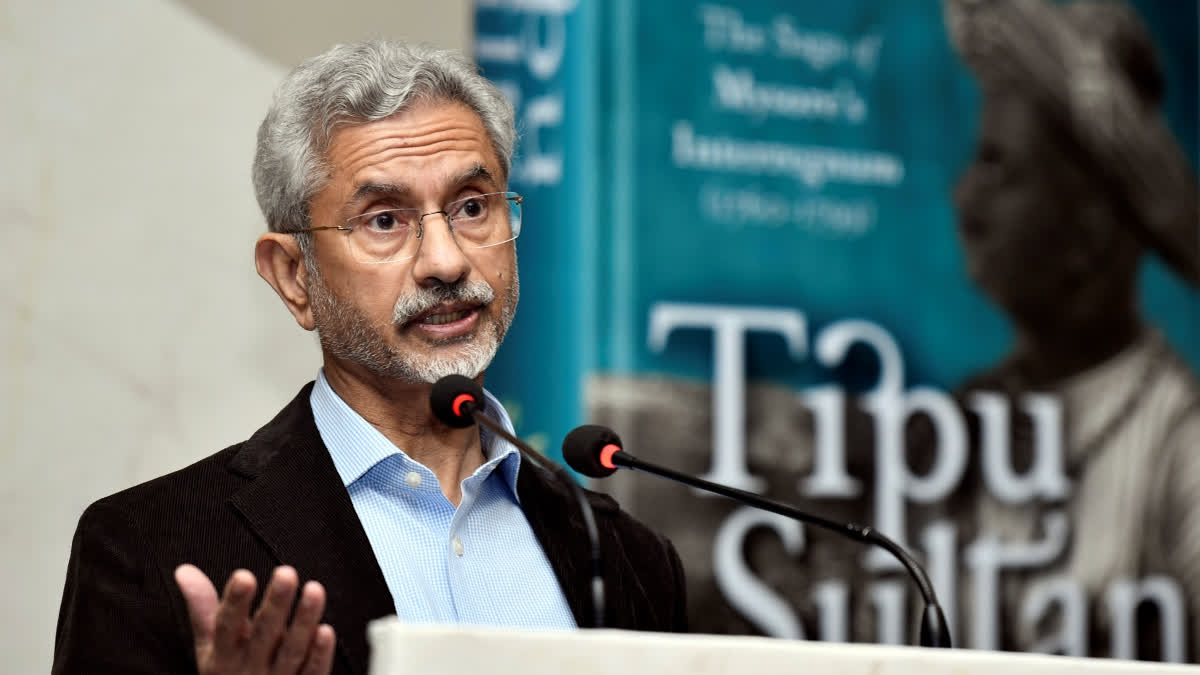New Delhi:History is "complicated" and the politics of the day often indulges in "cherry-picking facts" and to a considerable extent that has happened in Tipu Sultan's case, External Affairs Minister S Jaishankar said on Saturday.
He claimed a "particular narrative" about the former ruler of Mysore has been advanced over the years.
In his address at the launch of the book 'Tipu Sultan: The Saga of Mysore Interregnum 1761-1799' here, Jaishankar said there are some basic questions that "confront us all" today as to how much of "our past has been airbrushed", how awkward issues have been "glossed over" and how "facts are tailored for regime convenience".
The book has been written by historian Vikram Sampath.
The external affairs minister said, "In the last decade, the changes in our political dispensation have encouraged the emergence of alternative perspectives and balanced accounts."
"We are no longer prisoners of a vote bank, nor is it politically incorrect to bring out inconvenient truths. There are many more subjects on which the same degree of objectivity is needed," he said.
The minister said open-minded scholarship and a genuine debate are central to "our evolution as a pluralistic society and vibrant democracy".
Jaishankar underlined that Tipu Sultan is a "complex figure" in Indian history.
"On one hand, he has a reputation as a key figure who resisted the imposition of British colonial control over India. It is a fact that his defeat and death can be considered a turning point when it came to the fate of peninsular India. At the same time, he evokes strong adverse sentiments, even today, in many regions, by some in Mysore itself, in Coorg and Malabar," he said.
Contemporary history writings, certainly at the national level, have focussed largely on the former aspect, "underplaying, if not neglecting," the latter, Jaishankar claimed. "This was not an accident."
"History in all society is complicated and the politics of the day often indulges in cherry-picking facts. To a considerable extent that has happened in the case of Tipu Sultan," he said.
By highlighting the "Tipu-English binary" to the "exclusion of a more complicated reality, a particular narrative has been advanced over the years", the minister said.
Asserting that to call Sampath's book a biography would be a serious understatement, he said, "It is something very much more, capturing the flavour of a fast-moving and complicated era but offering insights into politics, strategy, administration, sociology and even diplomacy."
Jaishankar said the book not only presents facts about Tipu Sultan for the reader to make their own judgement but also brings out the context in all its intricacy. In that process, Sampath would have had many "challenges of orthodoxy to overcome," the minister underlined.
"These, I must say, are not specific to the treatment of Tipu Sultan, how much of our past has been airbrushed, how awkward issues have been glossed over, how facts are tailored for regime convenience. These are basic questions which confront us all today," he said.
Jaishankar said that as a "product myself of an institution" that was at the centre of these "politically driven endeavours", he could well appreciate the need to present an "actual representation" of history.
